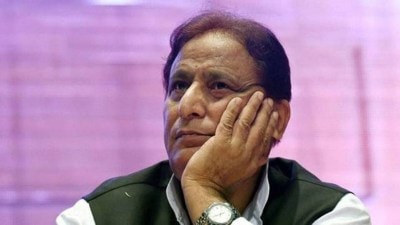Stay updated with the latest - Click here to follow us on Instagram
The fight against dengue and first steps towards mohalla clinics
With over 15,000 dengue cases this year, the capital suffered the worst outbreak of the viral disease in recent years.
 With over 15,000 dengue cases this year, the capital suffered the worst outbreak of the viral disease in recent years. (Source: Express Photo by Tashi Tobgyal)
With over 15,000 dengue cases this year, the capital suffered the worst outbreak of the viral disease in recent years. (Source: Express Photo by Tashi Tobgyal)
Looking back
The year began with a 45 per cent budget hike for the health sector and many promises. In an effort to reduce crowds at government hospitals and take healthcare to people’s doorsteps, its delivery model was redesigned. Plans for each step of the system — single-doctor neighbourhood clinics, polyclinics, secondary hospitals and tertiary hospitals — were announced.
However, at the end of the year, only one mohalla clinic and polyclinic is functional, while many of these plans have remained on paper.
With over 15,000 dengue cases this year, the capital suffered the worst outbreak of the viral disease in recent years.
The authorities were jolted into acknowledging the scale of the crisis when, in September, a couple in South Delhi committed suicide after their six-year-son died of dengue.
The boy had allegedly been denied admission by four private hospitals, which either didn’t have any beds left to accommodate him or adequate infrastructure to treat his deteriorating condition. After the tragic news made headlines, the government machinery went into overdrive, trying to create additional resources to deal with the crisis.
Nearly 1,000 beds were purchased within four days, disaster wards were opened up for dengue patients and private hospitals were directed to put additional beds in corridors and outside wards — wherever space could be created. Hospitals awaiting licences were authorised to start admitting only dengue patients.
For the first time, the government also put in place a mechanism to regulate charges of diagnostic tests in private laboratories. As swine flu cases from the earlier year’s winter trickled into 2015, and the dengue outbreak followed within months, the Delhi government directed private laboratories to charge not more than Rs 4,500 for swine flu tests and Rs 600 for dengue tests. The government also announced large-scale PPP projects for emergency care, including purchase and running of ambulances and modernisation of the CATS control room.
Looking forward
To augment localised healthcare systems, the government has already identified sites to set up other polyclinics. Staff from associated hospitals have been diverted to many of these clinics.
The government also plans to fulfill its promise for the health sector — the addition of 10,000 hospital beds within the next five years, with special focus on maternity and childcare.
Plans to set up new hospitals, announced during the Congress government’s tenure, have been modified to accommodate more beds. Two superspecialty hospitals, set up years ago but not functional yet, were finally opened partially to accommodate dengue patients. Making these hospitals fully functional would be another priority.







